Cry, the Beloved Country (1951)
“It was my son that killed your son.”
|
Synopsis: |
|
Genres, Themes, Actors, and Directors:
Review: Along the way, we’re shown some of the realities of Apartheid-era South Africa, with pervasive poverty and challenging dilemmas all around: The crime at the center of the film is appropriately shocking, and leads us swiftly towards its second half, as the impact of systemic racism and crime on citizens from all walks of life is explored: There are no easy answers, but thankfully, we see shifts-for-the-better occurring as a result of tragedy, with Carson coming to understand the power of the work his activist-son (Henry Blumenthal) had been engaging in before his death. The fact that Lee and Poitier — in just his second film role after No Way Out (1950) — had to be smuggled into South Africa as “indentured laborers”, and endured bitterly harsh restrictions while there, speaks directly to the challenges inherent in making this film, which remains worth a look given its unprecedented exploration of issues otherwise untouched in mainstream cinema of the time. Notable Performances, Qualities, and Moments:
Must See? Categories
Links: |
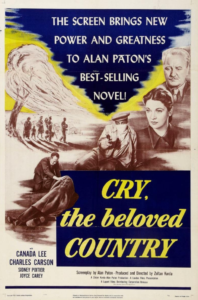
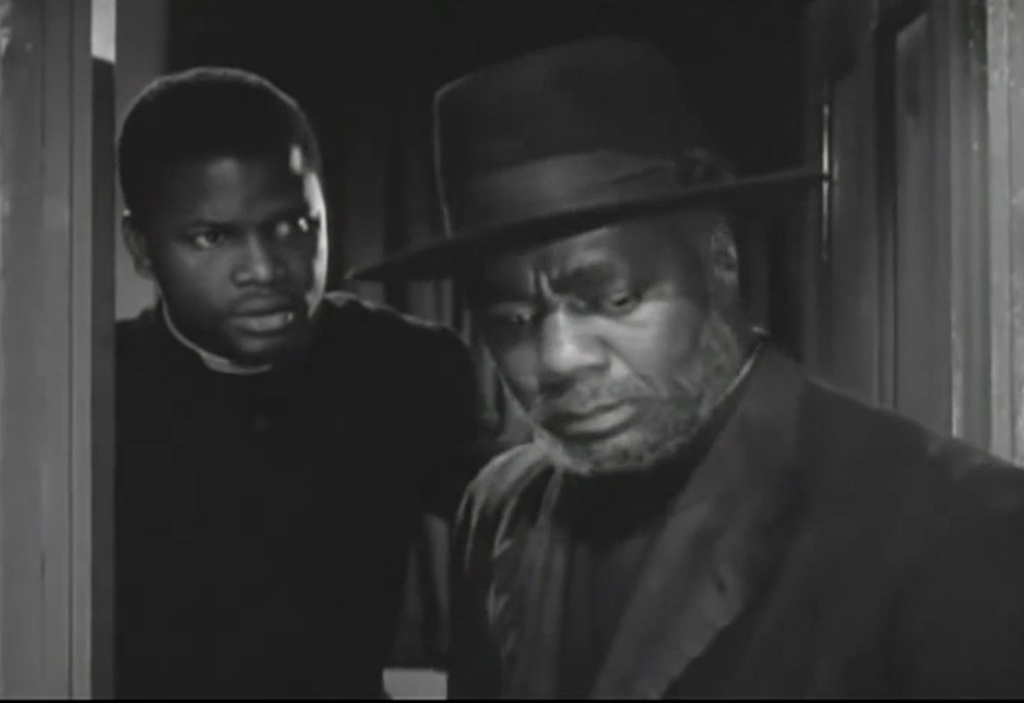
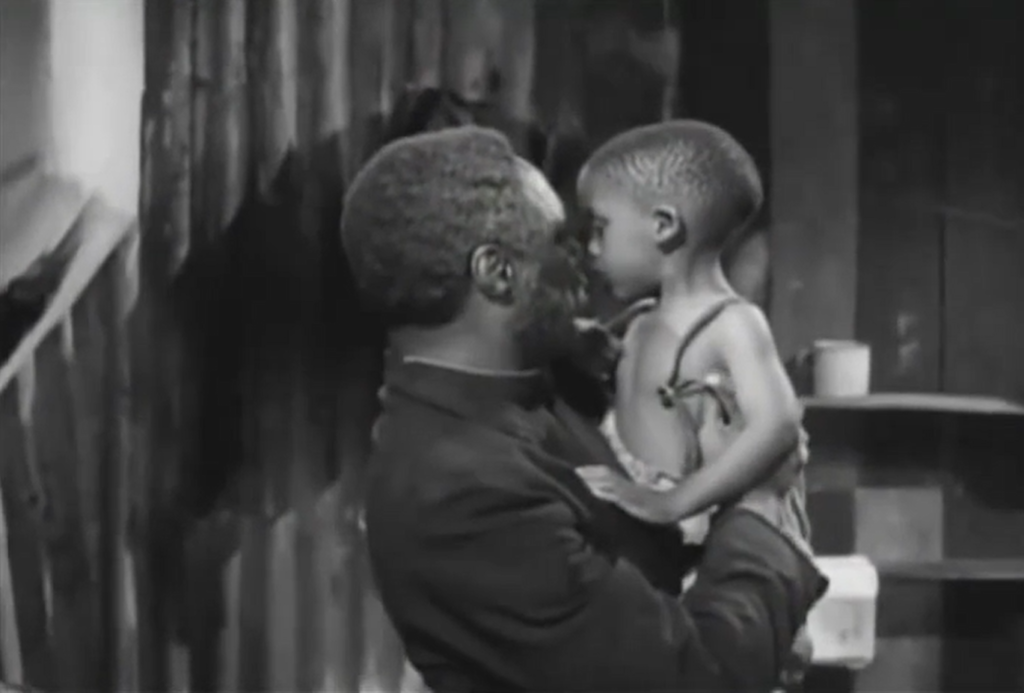
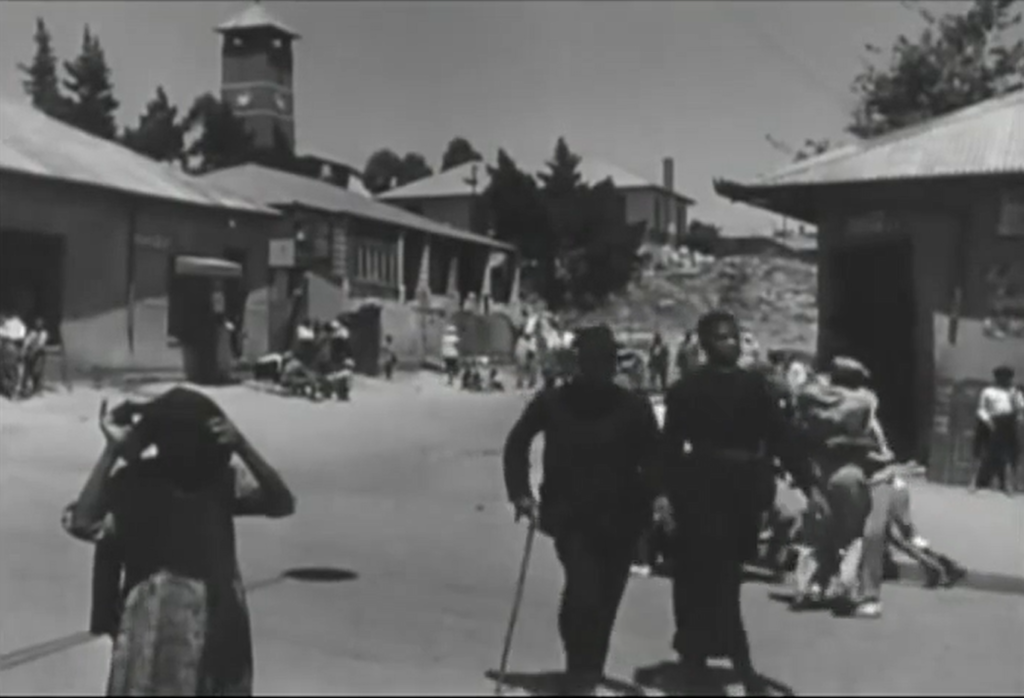
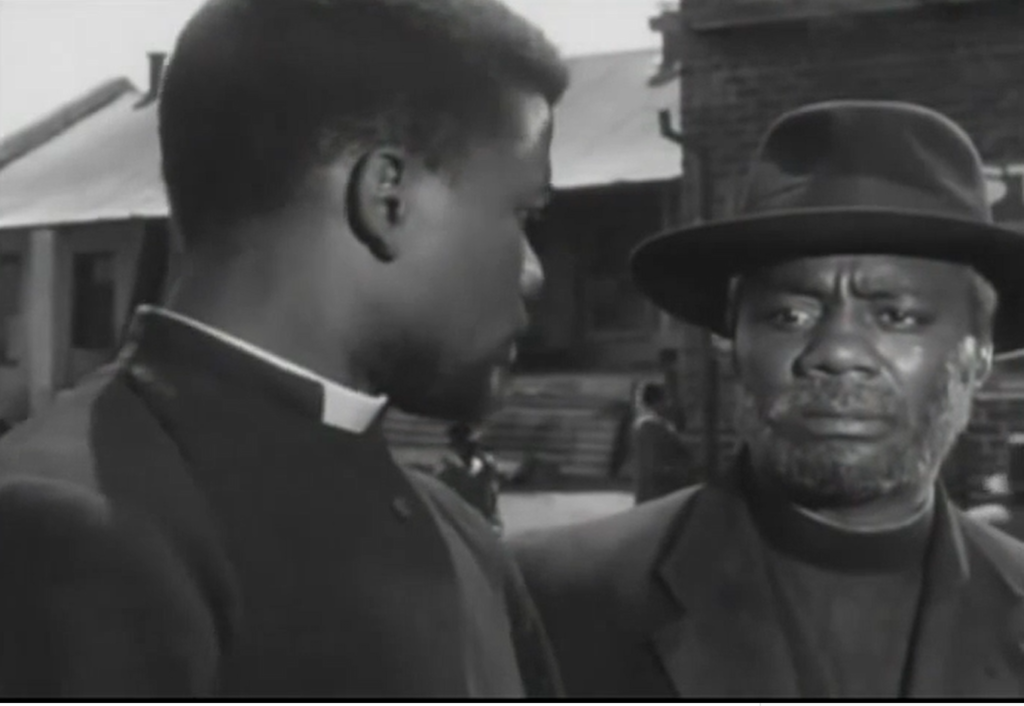
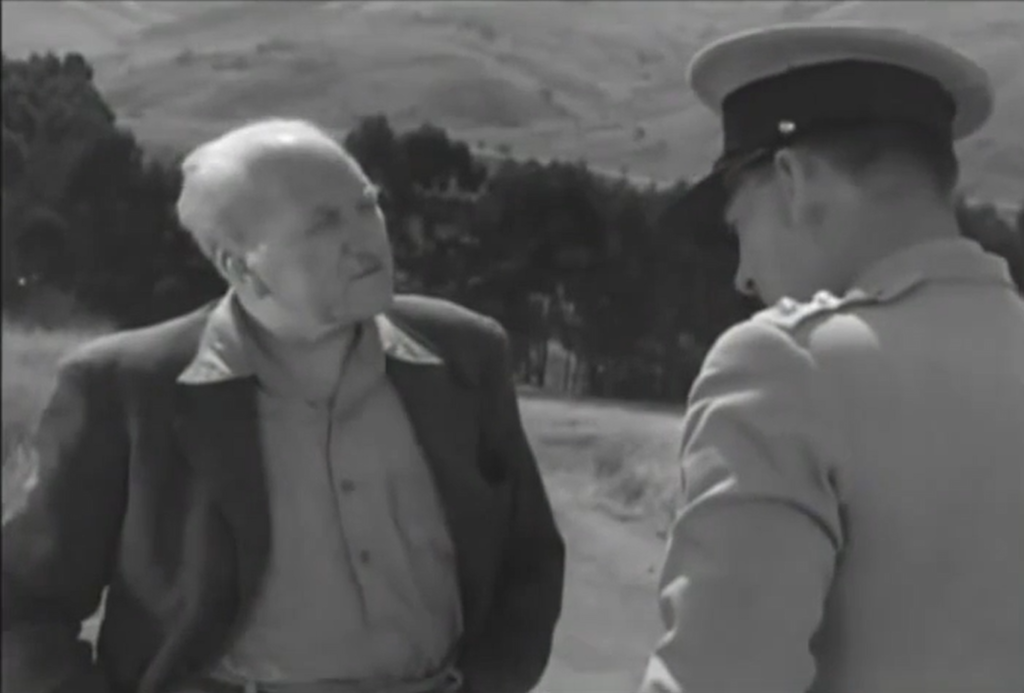
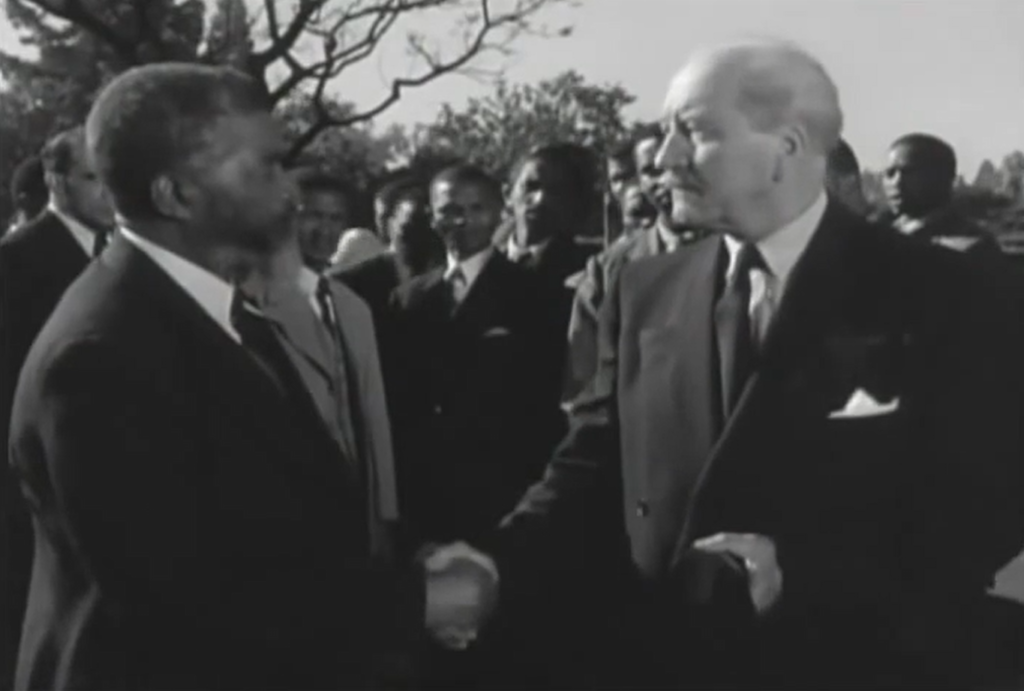
One thought on “Cry, the Beloved Country (1951)”
First viewing. Agreed; must-see, for its historical value.
The opening narration seems a bit unnecessary (but then, I am usually bothered by narration in film unless it feels specifically needed) and the film takes a little time in gaining momentum… but soon enough it does.
As noted, the film’s message is “quietly powerful” and attention should be paid.